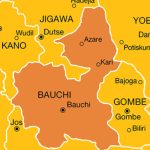
On Wednesday, the Peoples Democratic Party (PDP) and their presidential candidate, Atiku Abubakar, withdrew their recent application filed to compel the Independent National Electoral Commission (INEC) to allow their agents to participate in the sorting of ballot papers used in the February 25th presidential election. Atiku and the PDP are separately challenging the result of the election that declared Bola Tinubu, the candidate of the ruling All Progressives Congress (APC), as the winner.
At the Presidential Election Petition Court (PEPC) in Abuja, Atiku’s legal team, led by Mr. Joe Kyari Gadzama, SAN, informed the court that they were no longer interested in the application. They filed a notice of discontinuance because INEC had pledged to allow their agents to observe the process of sorting out some of the electoral materials requested, especially the ballot papers. They felt that there was no need to proceed with the hearing and filed a notice of discontinuance to save judicial time.
Following the withdrawal of the application, Justice Joseph Ikyegh-led three-member panel struck it out. Atiku had argued that his agents needed to be present during the sorting of the electoral materials he requested in all the offices of INEC nationwide. He believed that transparency in the process would be ensured, and the ballot papers would not be tampered with if his agents were present.
On March 3, the tribunal directed INEC to allow Atiku and the PDP to inspect, scan, and carry out forensic examination and analysis of the ballot papers, data form, BVAS/and or card readers, including photocopying of the ballot papers, information stored in the computer server/IREV. Though the court ordered INEC to grant Atiku and Peter Obi, the Labour Party candidate who came third in the election, access to the electoral materials, a subsequent order was made on March 8, giving INEC the nod to reconfigure the Bimodal Voter Accreditation System (BVAS) machines used for the presidential election.
The court held that stopping INEC from reconfiguring the BVAS would adversely affect the conduct of the Governorship and State Assembly elections scheduled for Saturday. Obi and his party raised objections against INEC’s move to reconfigure all the BVAS devices used for the presidential poll, but the court dismissed them.
The court also directed INEC to allow Tinubu and the APC to inspect and obtain copies of the electoral material, to enable them to prepare their defence against petitions that may be lodged to overturn their election victory. According to INEC, Tinubu scored a total of 8,794,726 votes to defeat Atiku who polled a total of 6,984,520 votes and Obi who came third with a total of 6,101,533 votes. Both PDP and LP rejected the outcome of the election and vowed to challenge it in court.
Under the Electoral Act 2022, any candidate dissatisfied with the return made by the INEC, shall within 21 days after the date of the declaration of the result of the election, file a petition before the tribunal. An election tribunal shall deliver its judgement in writing within 180 days from the date the petition was filed.





Comments are closed.